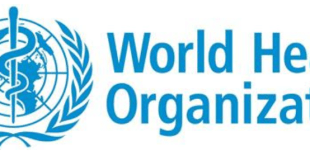The mental health problems among pregnant and postpartum women have increased unprecedentedly during the last 2 years. Unlike the first wave of Covid-19, which caused fewer problems to all pregnant and lactating moms, the second wave exposed pregnant women to the disease, increasing the risk of serious infection and negative consequences on the foetus. Depression and anxiety affect one in every seven women during pregnancy and are linked to an increased risk of preterm delivery, impaired mother-infant bonding, and delays in the infant’s cognitive and emotional development. This has gotten worse as a result of Covid 19, and its consequences are beginning to be felt post-Covid” said Dr. Shilpa Ghosh, Director and Sr. Consultant, Obstetrics & Gynaecology, Aakash Healthcare, Dwarka
Despite the fact that prevention and therapy are crucial, it is estimated that 50% of women who are depressed during and after pregnancy go misdiagnosed. Mental health issues symptoms are more common in new mothers than in pregnant women. They are classified as postpartum blues. Postpartum depression is the most common but mild variation of postpartum blues whereas postpartum psychosis is the most severe kind. The prevalence of these disorders has been observed to rise as a result of the pandemic, with anxiety affecting roughly 50-60% of women and depression affecting about 30-35 percent.
For those who are pregnant, they constantly worry about their and their baby’s health especially irrespective of the fact the pandemic is beginning to get under control, Dr. Gauri Agarwal, Fertility Specialist, Founder & Director, Seeds of Innocence said “Approximately 8% of all pregnancies have difficulties that, if not addressed, could endanger the mother or the baby. While some problems are related to pre-existing health issues, others arise suddenly and are unavoidable. Post-Covid 19, mental health issues among pregnant and postpartum women have increased. Concerns include fear of catching infections, impact on labour and delivery, increased risk of severe neonatal outcomes, and ambiguity about the disease’s long-term implications on mother and baby. To stay one step ahead of any potential problems, it’s vital to communicate with your gynaecologist on a regular basis. Never disregard your doctor’s test or precaution suggestions. A pregnant woman should get the required vaccines during each trimester. Women who are having problems with their mental health should see a psychiatrist. In addition, keep your personal hygiene up to date to prevent the transmission of any diseases. It’s also a good idea to keep clear from the droppings of wild or pet rats, lizards, and turtles. It’s crucial to avoid alcohol, smoking, and tobacco when you’re carrying a baby. Maintain a healthy weight during your pregnancy to avoid preeclampsia (a pregnancy complication characterized by high blood pressure and signs of damage to another organ system, most often the liver and kidneys), gestational diabetes, and other issues”
Anxiety and psychological distress during pregnancy and after delivery as a result of the pandemic include :
Fears of developing an infection
Sleep deprivation
Spending extra time on social media to evaluate Covid 19 information
Fear of contracting infections from family members or friends
Mood fluctuations as a result of not being able to see friends and family as frequently
Non-stop worrying
Feeling uneasy and anxious, impatient and easily annoyed
Being restless throughout the day
No interest or joy in accomplishing routine tasks
Feeling down or hopeless
Doctors advise that a woman should seek help from a psychiatrist through teleconsultation if these symptoms have been present for more than half of the day in the last two weeks.
Keep your social, emotional, and mental health in check
Dr. Priyanka Trivedi, Consultant, Mental and Behavioural Sciences, Aakash Healthcare, Dwarka said, “Self-care, emotional, and mental well-being are crucial at this vital stage in the fight against the pandemic blues. Yoga or deep breathing, combined with a nutritious and well-balanced diet, can bring relief and comfort. Reading novels, walking in the garden, or simply having a lively discussion and laughter with your loved ones will help to calm your anxiety to some extent.”
Consult your doctor if you believe you are stressed as a result of your pregnancy. Learn how to cope with depression and look after yourself during the Covid-19 pandemic.
You may be feeling burdened by work, domestic duties, or your older children. Rather than dealing with these difficulties on your own, seek help. Spouses should also be more accountable for looking after the child for an hour or two so that the new mother’s load is lessened.
“Although it can be tough for new mothers to set aside some “me time,” it is necessary and should be done at least once a week. Even if you can only go out of the house in between nursing sessions, you can use this time to relax and chill. In addition to that, it is alright to be in touch with your psychologist and take necessary help from time to time”, said Dr. Trivedi.
 Newspatrolling.com News cum Content Syndication Portal Online
Newspatrolling.com News cum Content Syndication Portal Online





